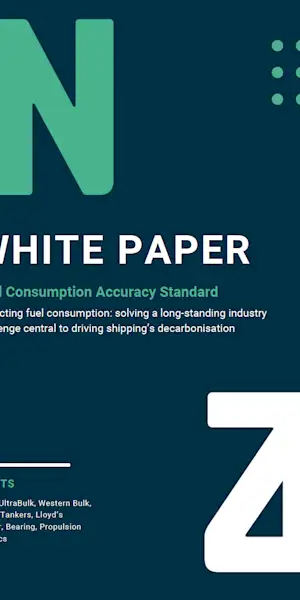Fuel consumption model accuracy standard
In an effort to solve a longstanding industry challenge central to driving shipping’s decarbonisation pathway, ZeroNorth has come together with key industry leaders to formulate an industry-wide methodology for fuel consumption model benchmarking.
The working group, which was formed earlier in 2021, will take advantage of new digital technologies to unlock even more precise fuel consumption predictions, delivering real knowledge and insight, and further enhancing vessel optimisation.
Together the roundtable workshops with eleven participating companies - spanning ship owners, operators and managers, fuel consumption model providers and voyage optimisation software companies including Cargill, Ultrabulk A/S, PropulsionDynamic, Western Bulk , Bearing and Maersk Tankers Tankers - formulated an accuracy benchmark to assess fuel consumption model accuracy and positively impact voyage optimisation as a result.
Following the most recent meeting, a draft ‘Tier 1’ benchmark is now ready to be tested in the market to gather feedback. The white paper explains the methodology in more detail. Please download and share your feedback with us.
Background: Why are fuel consumption models important?
Predicting and accurately measuring marine fuel consumption is an important task that crew, owners, operators and charterers have to complete for every vessel travelling the world’s oceans. Technology and theoretical modelling have significantly evolved to create fuel consumption models and speed curves that estimate the amount of fuel that a vessel should consume under certain conditions. This information is an important part of vessel performance optimisation.
Fuel consumption models are generated from an underlying mathematical formula that considers a huge range of parameters, such as the deadweight tonnage of a vessel, its width, engine type, draught and power.
Assessing the relative accuracy of these models is therefore vital to ensure that any optimisation decisions are based on the reality that a vessel faces at any given moment and in a range of conditions.

“We are excited about the prospect of coming together and creating a common industry benchmark for fuel table performance to drive the industry forward by sparking new ideas and increasing the focus on CO2 reductions.”
— Harshit Tripathi, Business Analyst Vessel Performance, Ultrabulk